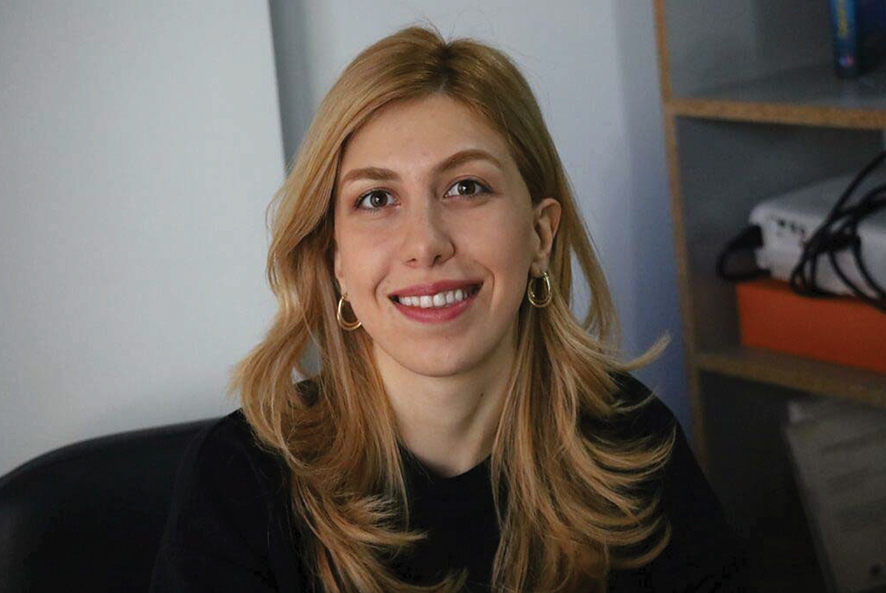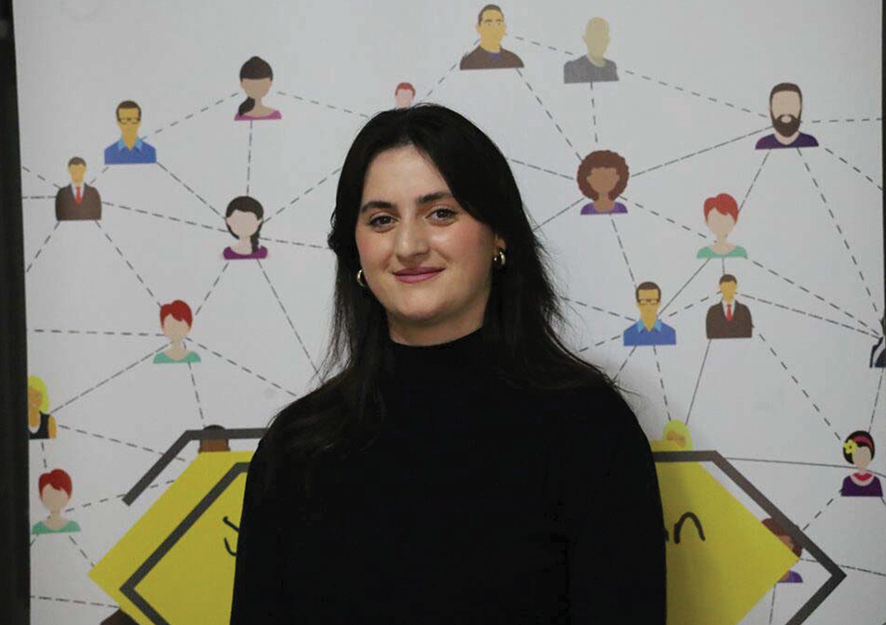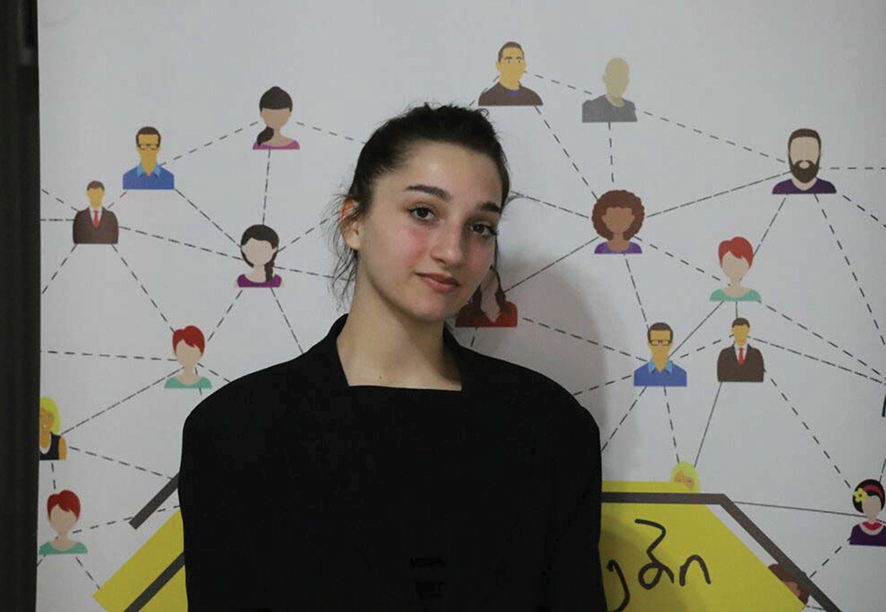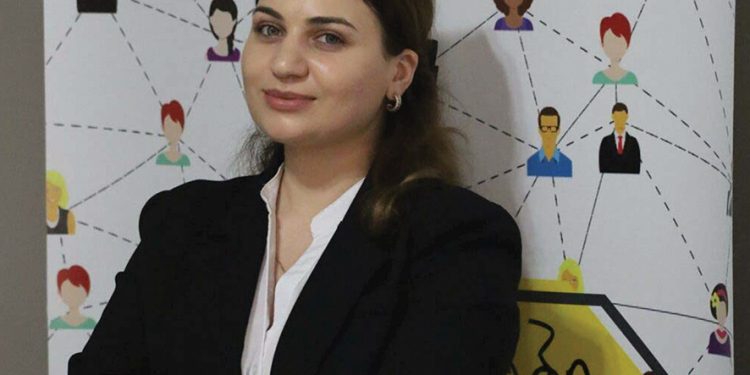Lack of real-world experience is a common challenge for young people looking for a job. This is particularly the case in the Adjara region of Georgia, where the highly theoretical approach used by local educational institutions often fails to offer practical knowledge. Furthermore, opportunities to develop skills in in-demand jobs such as HR management, sales, and marketing are quite limited. The local NGO ‘Youth for Public Interest’ is addressing these gaps using EU support, helping youngsters to get their careers off the ground.
‘Youth for Public Interest’ started in 2015, when Meri Namgaladze, its future chairwoman, was herself a university student. Inspired by her coursework in civil activism, she, together with some fellow students, got involved in a social project, implemented with success. This experience motivated Meri to formalize the group and establish an NGO.

“Our initial projects were focused on addressing the educational gap that we had identified, including training in project writing, volunteering, participation in budgeting processes and organizing visits to public offices,” Meri says.
Since 2015, ‘Youth for public interest’ has involved in its activities some 300 young people, having built a business network which includes youth, local private companies and public entities – such as the Adjara Employment Agency, the Youth Agency, the Regional Employment Centre and the Batumi City Hall.
In 2023, the NGO received EU financial support through the Education Development and Employment Center (EDEC), working in partnership with the Konrad Adenauer Foundation. The grant allowed them to introduce a specific training module which was tailored to the needs of the target group of 30 young people who wished to find a job or set up a business.
“Our target age was between 16 and 29. We went around several educational institutions, including Batumi Shota Rustaveli State University, College Black Sea, Batumi State Maritime Academy, and the Batumi Navigation Teaching University, to maximize students’ engagement. We had a strong promotion on social media, and several spots on Batumi radio,” says Meri. “And our efforts paid off: we received 160 applications from young people. It was quite a challenge to select just 30.”
Professional self-determination, social media marketing and creating a business plan were the three topics of the courses, carefully selected on the basis of market demand.
We recognize the significance of forging connections between the private sector and civil society, particularly with youth
“There is a significant shortfall in motivation and analytical skills among youth,” says the chairwoman of the NGO. “In the very beginning, we tried to identify the career goals and aspirations of our participants: whether it was to start their own business or to seek employment within a company. We tailored our approach based on their goals.”

Two streams, each of 15 young people, were structured around eight modules, delivered one per day. A practical component of the training involved developing marketing strategies for 10 local companies. Participants, organized into small groups, crafted detailed sales and marketing strategies, including comprehensive budgets.
Tamara Danelia is the founder of the Meza Group, a local Georgian eyewear brand. In the framework of the training session, a group of young people worked on a marketing strategy for her company. “The fresh, innovative ideas brought by the young people were genuinely eye-opening! The new marketing strategy allowed us to refine our approach to visibility and increase our sales. The involvement of young people was not only an asset for us; it was an example of how youth empowerment can lead to tangible improvements in our business practices,” Tamara insists.
The final activity of the NGO was to organize a Youth Forum in Batumi – a space for around 100 young people to engage directly with the public sector, including representatives from Batumi City Hall, employment agencies and private companies. The forum facilitated discussions on existing EU projects for youth, opened networking opportunities with potential employers, and presented the marketing strategies developed by the participants in the course of the trainings.
Just two months after its completion, the initiative was already bearing fruit. One participant has started a job in a private company; two have started their own businesses. Ana Khalvashi, 18, is a student who has been hired by marketing company Digital Port, working now as a social media manager.
“The training helped me to set goals for myself and to find a job. The knowledge I gained perfectly matched my current job profile, leading to successful employment,” she says.

Nestan Zoidze, 26, used to work at a supermarket chain. Her family runs a guesthouse and a small restaurant in Chanchkhalo village, two hours’ drive from Batumi.
“Before the training, I considered the development of our family business as an unattainable goal”, she confessed. “Participation in the NGO’s activities gave me a good understanding of what is needed in marketing for a guesthouse and restaurant. This experience made me quit my well-paid job in order to dedicate myself full-time to our family business. This decision has profoundly changed my life.”
A long-lasting impact of the ‘Youth for Public Interest’ initiative lies also in the creation of the Batumi Business Network, which bridges young people with around 200 representatives of local businesses. It is sustained via a Facebook group and physical meetings, the first of which was co-funded by the companies. The network gives room to companies to share information about job vacancies specifically interested in hiring students.
“We recognize the significance of forging connections between the private sector and civil society, particularly with the youth. Therefore, we plan to pursue new funding to strengthen and expand this network,” NGO head Meri Namgaladze concludes.
By Volha Prokharava for euneighbourseast














